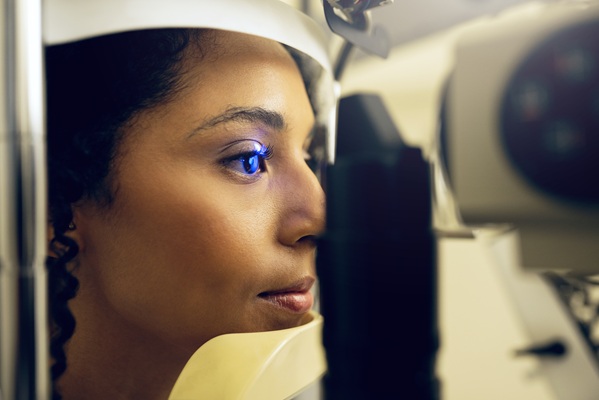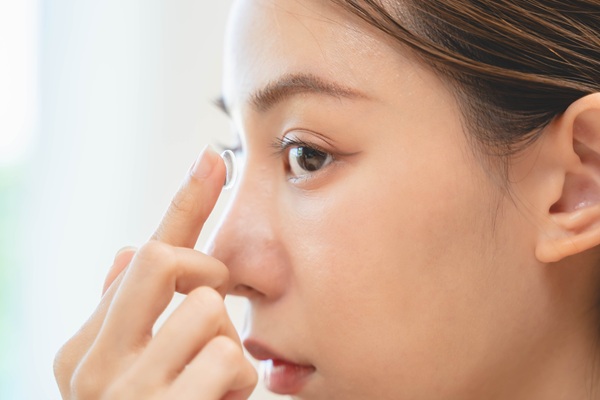5 Signs Your Child May Need Prescription Glasses

It is not uncommon for children who need prescription glasses to live with an undiagnosed vision problem for years. Vision problems can negatively impact a child's performance both in school and outside of the classroom. Vision problems can also cause a number of adverse health symptoms such as headaches and chronic fatigue. For these reasons and others, it is important to recognize the signs of vision problems and to address them with an optometrist as soon as possible.
What are prescription glasses?
Prescription glasses, or prescription spectacles, are eyeglasses that help improve the patient’s vision. They are specifically designed to match the patient’s vision defect. Children in particular can benefit from prescription glasses as it helps them learn and feel more confident daily.
Signs a child needs prescription glasses
It can be difficult to recognize vision problems in young children, especially if those children have yet to master their ABCs and numbers one through 10. Below are five signs that may be suggestive of a vision disorder.
1. Complaints of headaches
Headaches can occur for any number of reasons, including dehydration, poor sleep, and emotional stress. However, one of the most common reasons for headaches in children is vision strain. If a child complains about headaches often (once a week or more), it may be a sign of undiagnosed eyesight issues.
2. Squinting
Children and adults alike unconsciously squint or read with one eye shut to compensate for blurry vision. When a child squints when doing homework or trying to concentrate on small symbols, it is time for the parent to schedule a visit with the eye doctor. Though it is the body's instinct to squint, doing so does not help. In fact, squinting does more harm than good and perpetuates chronic headaches.
3. Poor performance in school
It is not uncommon for children with eyesight issues to perform poorly in school, or for teachers, guidance counselors, and parents to assume the child has ADD or ADHD. When a child needs prescription glasses but does not receive correction, it becomes difficult for them to concentrate on computers, textbooks, or whiteboards. Oftentimes, the adults in the child's life will either assume the child prefers not to focus on schoolwork or has an undiagnosed behavioral disorder. Before resorting to medications for such disorders, parents should visit the optometrist to see if the child needs glasses instead.
4. Excessive eye rubbing
Individuals who live with undiagnosed sight issues tend to rub their eyes excessively. Children and adults may do this to "restore" vision or to alleviate the pain, strain, or discomfort poor eyesight causes.
5. Sitting too close to the TV
Many children sit too close to the TV for no particular reason. However, a parent should always be wary about this type of behavior, especially if it is accompanied by other symptoms, such as headaches, excessive eye rubbing, or poor academic performance. Sitting too close to the television and holding devices too close to one's face may be a sign of nearsightedness, myopia, or poor long-distance vision.
What are the benefits of prescription glasses for children?
There are many benefits of prescription glasses for children who do not have ideal vision. In other cases, prescription glasses may also help address certain uncomfortable symptoms (e.g. headaches) or address eye complications such as a lazy eye or being cross-eyed. Some of the more notable benefits of prescription glasses for children include (but are not limited to):
- Improved daily function
- More daily confidence
- Helps children feel better
- Improved reading skills
- Improved ability to learn
- May help strengthen vision
- May help straighten eyes
It is best to discuss the pros and cons of prescription glasses for your child with an eye doctor to determine if they are appropriate. Of course, contact lenses may also be an option (see below).
Contact lenses vs. prescription glasses: which is better?
Ultimately, the choice between contact lenses and prescription glasses usually comes down to personal preference. Many children (and parents) prefer glasses as they are more affordable and less difficult to wear. Contact lenses, however, are not noticeable, which many children and parents prefer.
Ask a professional
If a child constantly complains of headaches, squints when reading, demonstrates poor performance in school, rubs their eyes excessively, or sits too close to the television, they may be living with vision problems and need prescription glasses. To ensure these issues do not negatively impact performance in or out of the classroom, parents should schedule an eye exam at the first sign of sight problems.
Get more information here: https://www.texasoptical.net or call Texas Optical at (214) 771-7333
Check out what others are saying about our services on Yelp: Read our Yelp reviews.
Recent Posts
For those living with diabetes, undergoing a diabetic eye exam is one of the most important steps in protecting their vision and overall eye health. High blood sugar levels can lead to a range of complications, including conditions that damage the eyes over time. These exams help detect these issues before they become serious, allowing…
Contact lenses provide clear vision and convenience for individuals who prefer an alternative to eyeglasses. However, proper care and maintenance are essential to prevent infections, irritation, and eye damage. Neglecting hygiene practices can lead to serious eye conditions, including corneal ulcers and keratitis. Understanding how to clean, store, and handle contact lenses ensures long-term eye…
Maintaining eye health and preventing long-term issues is the result of consistent and quality vision care. Many people focus on overall wellness but may overlook daily habits that support healthy eyesight. However, taking simple steps each day can protect vision, reduce eye strain, and prevent future complications. By making eye health a priority, it is…
Prescription contacts provide vision correction, comfort, and convenience for those who do not want to wear glasses. However, caring for and wearing contacts takes some getting used to. Learning to insert, remove, and maintain them will help ensure a comfortable and safe experience.Not all contact lenses are the same, and choosing the right pair is…


